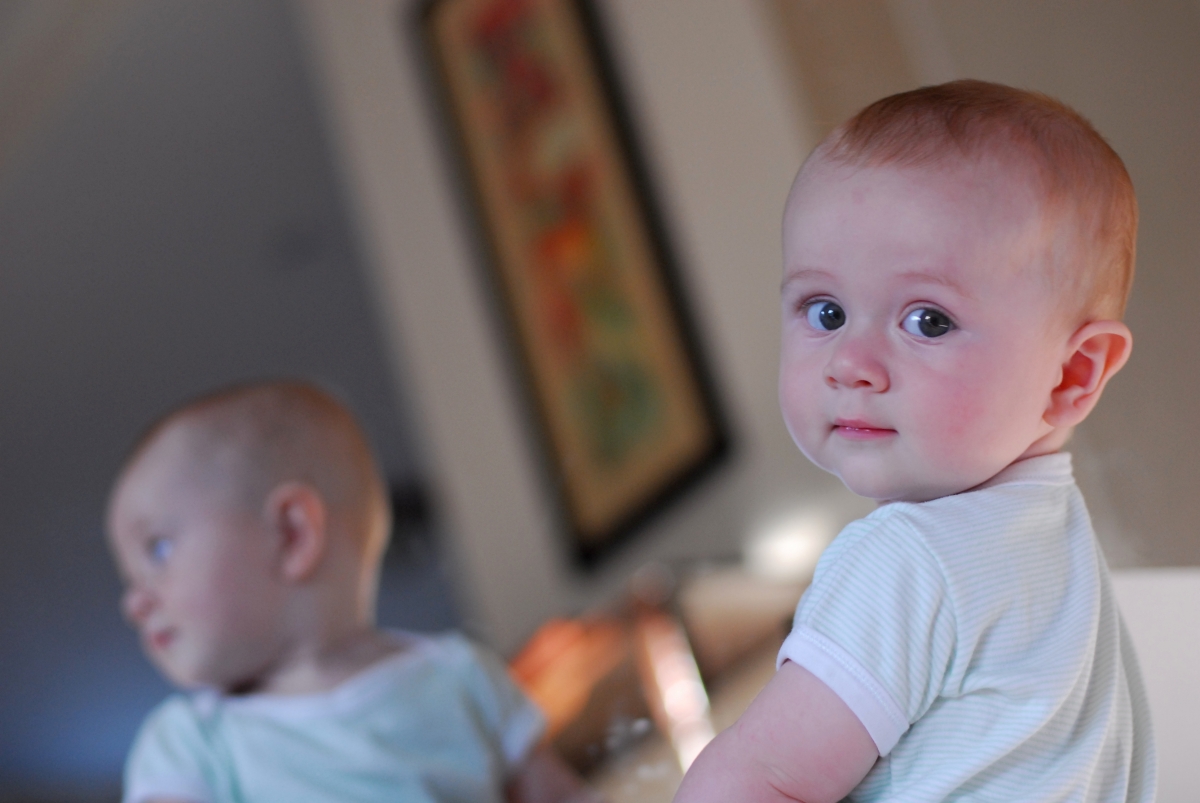Can my baby recognize himself in the mirror?
The first time he smiles at himself in the mirror, he's probably just reacting to seeing a happy face. But as time goes on, he'll figure out that this is his own face. This is a sign that your baby starts the recognition of himself as a separate entity in the world.
In one experiment in the late seventies, researchers asked a group of mothers and their babies, ages 9 to 24 months, to play in front of a mirror. First, the researchers watched to see how each baby acted when placed in front of a mirror. Next, each of the mothers pretended to wipe dirt off her baby’s face—but they were really putting a small bit of red makeup on the tip of the baby’s nose. Then the babies were placed in front of the mirror again, to see what they would do.
Before they’re 15 months old, babies don’t seem to recognize themselves in the mirror. These babies stared at their reflections and may have found them familiar, but they didn’t react any differently when they saw the red spots on their noses. But by 21 months, most infants tried to touch or wipe their nose. Researchers also studied children’s self-awareness as a way to learn about emotions such as embarrassment. The children who touched their red noses in the mirror were the only ones who showed embarrassment. Those who didn’t touch their noses did not show signs of being embarrassed.
Parenting tips
- Be caring and responsive to your child as he may not understand what he’s feeling. Support all of his emotions.
- Don’t dismiss their emotions no matter how minor the situation.
- Be a good listener and get down to his level and let him know you care.
- Help your child by naming new emotions and teaching healthy ways to deal with them.
- Some children might find embarrassing situations fun, while others will be very uncomfortable. If your child gets embarrassed easily and is uncomfortable, redirect him to another activity, toy, or room.

Articles
2356
Home Visit Service
Your Baby checkup
Is my child developing normally?
what are the vaccinations that he should have taken until now?
Generate a report for my baby.
what are the vaccinations that he should have taken until now?
Generate a report for my baby.
Birthdate *
Track Your Baby Vaccinations
Receive reminders by email for the Vaccination timing
Find Your Baby name
Visit our Clinics
Mohandessin
Address
View Map
21 Batal Ahmed Abdel Aziz St, 3rd floor
Telephones
01002195777
01000012400
0233048350
Beverly Hills
Address
View Map
Beverly Hills, Building 29 services, behind Super Market Al Mokhtar, floor 1.
Telephones
01000012900
0238576831
El Tagamo3
Address
View Map
Elegantry Mall, Unit 221
Telephones
01000012800
01000884592
Al Sheikh Zayed
Address
View Map
Al Sheikh Zayed - Entrance 2,Downtown Mall - In-front of Spectra ,First Floor - Clinic 113
Telephones
02- 38514031
01000608597
Please enter your e-mail


